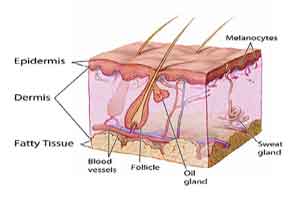- Home
- Editorial
- News
- Practice Guidelines
- Anesthesiology Guidelines
- Cancer Guidelines
- Cardiac Sciences Guidelines
- Critical Care Guidelines
- Dentistry Guidelines
- Dermatology Guidelines
- Diabetes and Endo Guidelines
- Diagnostics Guidelines
- ENT Guidelines
- Featured Practice Guidelines
- Gastroenterology Guidelines
- Geriatrics Guidelines
- Medicine Guidelines
- Nephrology Guidelines
- Neurosciences Guidelines
- Obs and Gynae Guidelines
- Ophthalmology Guidelines
- Orthopaedics Guidelines
- Paediatrics Guidelines
- Psychiatry Guidelines
- Pulmonology Guidelines
- Radiology Guidelines
- Surgery Guidelines
- Urology Guidelines
Vitamin therapy may prevent deadly skin cancer: study

A therapy using a form of Vitamin B3 can potentially prevent melanoma - a deadly skin cancer - according to scientists, including one of Indian origin.
Researchers from University of Sydney in Australia found that nicotinamide can help reduce or reverse DNA damage, inflammation, and immunosuppression caused by ultraviolet radiation.
The cost of nicotinatimide is about USD 10 per month if taken at one gramme per day as recommended, researchers said.
Randomised placebo controlled trials are now warranted to determine its efficacy and safety for melanoma prevention, they said.
Ultraviolet radiation (UVR) causes DNA damage in melanocytes by producing photolesions such as cyclobutane pyrimidine dimers and 8-oxo-7-hydrodeoxyguanosine.
The production of reactive oxygen species by UVR also induces inflammatory cytokines that, together with the inherent immunosuppressive properties of UVR, propagate carcinogenesis, researchers said.
Nicotinamide (Vitamin B3) enhances DNA repair, modulates the inflammatory environment produced by UVR, and reduces UV- induced immunosuppression.
As nicotinamide reduces the incidence of actinic keratoses and nonmelanoma skin cancers in high-risk individuals and enhances repair of DNA damage in melanocytes, it is a promising agent for the chemoprevention of melanoma in high-risk populations.
"Nicotinamide has been show in a clinical trial - called ONTRAC - to reduce the incidence of non-melanoma skin cancer in high-risk individuals and it would be worthwhile to determine whether it would also be useful for high-risk melanoma patients," said Gary Halliday from University of Sydney.
The study was published in the Photodermatology, Photoimmunology and Photomedicine.

Disclaimer: This site is primarily intended for healthcare professionals. Any content/information on this website does not replace the advice of medical and/or health professionals and should not be construed as medical/diagnostic advice/endorsement or prescription. Use of this site is subject to our terms of use, privacy policy, advertisement policy. © 2020 Minerva Medical Treatment Pvt Ltd